
Digital Infrastructure Investment 2022
A summit uniting financial services and broadband operators
Become a Breakfast Club Member2022 Full Program, Speaker Bios, Sponsors and Articles from the Event
In person or online attendees may access the videos. Members of the Broadband Breakfast Club also have full access.
Video page:
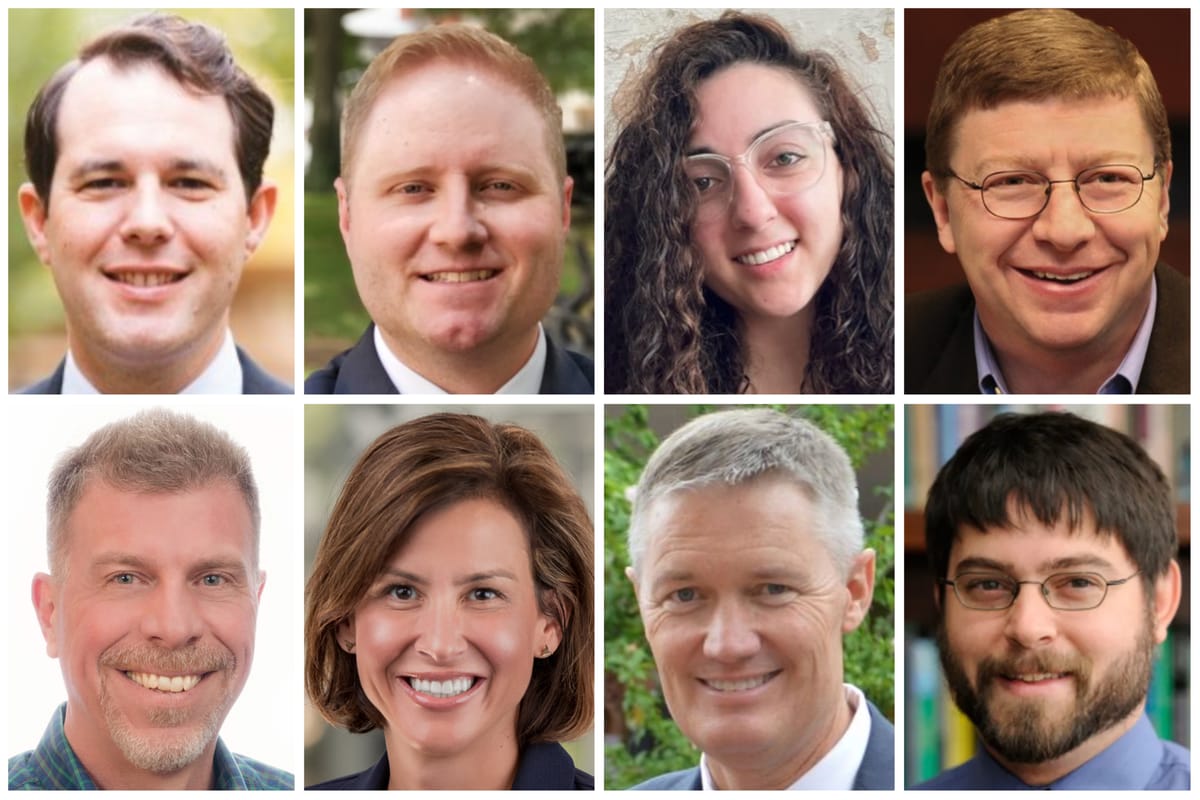
2022 Digital Infrastructure Investment Summit Program
The annual Digital Infrastructure Investment program brings the broadband infrastructure and financial services communities together to focus on the digital infrastructure and investment asset profile, including fiber, small cells, towers and data center assets, that is required to support a 21st-century information economy.
The pathbreaking program on November 17, 2022, took place at Clyde’s of Gallery Place in Washington, D.C.
KEYNOTE – Phil Murphy, Senior Advisor, Office of the Assistant Secretary, NTIA
PANEL 1 – What’s the State of the IIJA?
- Nearly one year into the passage of the Infrastructure Investment and Jobs Act, what is its state of implementation? How are state broadband offices feeling about the pace of the National Telecommunications and Information Administration? What are they doing to prepare for it? How big of a jolt to the broadband industry will the IIJA be?
- Panelists:
- Phil Murphy, Senior Advisor, Office of the Assistant Secretary, NTIA
- Glen Howie, Director, Arkansas State Broadband Office
- Kenrick Gordon, Director, Maryland Office of Statewide Broadband
- Hannah Hill, Principal, Boston Consulting Group
- Moderated by Gabriella Novello, Assistant Editor, Communications Daily
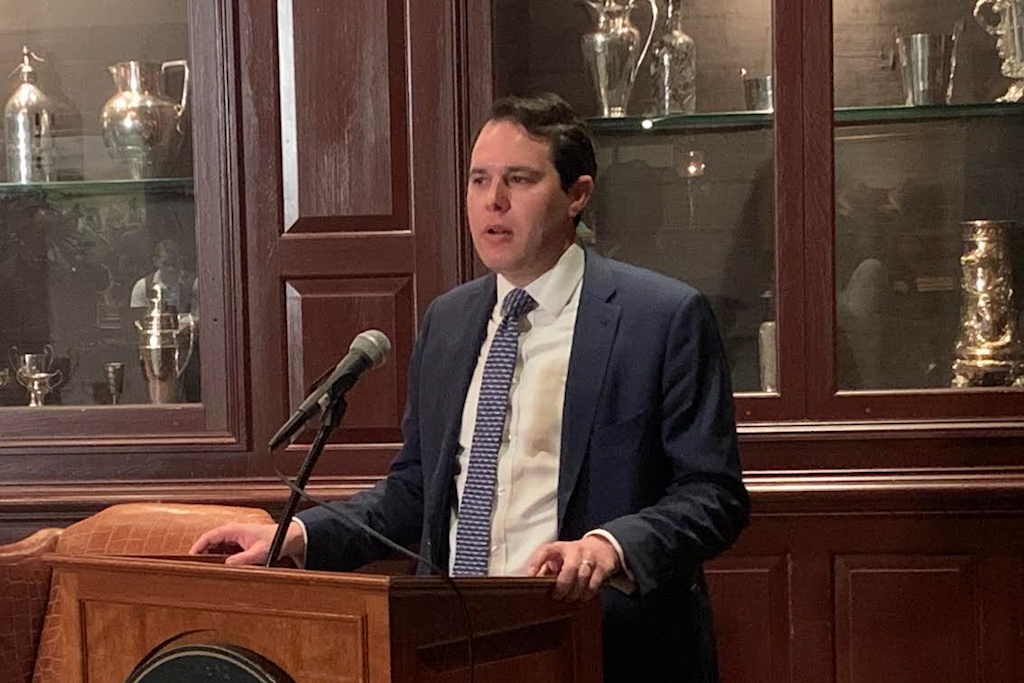
PANEL 2 – Broadband Mapping: Are We on the Right Track or the Wrong Track?
- Broadband maps have bedeviled the broadband buildout. With promised, updated maps from the Federal Communications Commission just around the corner, is resolution just around the corner? What is the game plan for government and industry participants?
- Panelists:
- Bryan Darr, Executive Vice President of Smart Communities, Ookla
- Jim Stegeman, President, CostQuest Associates
- Mike Conlow, Director of Network Strategy, Cloudflare
- David McGarry (moderator), Reporter, Broadband Breakfast
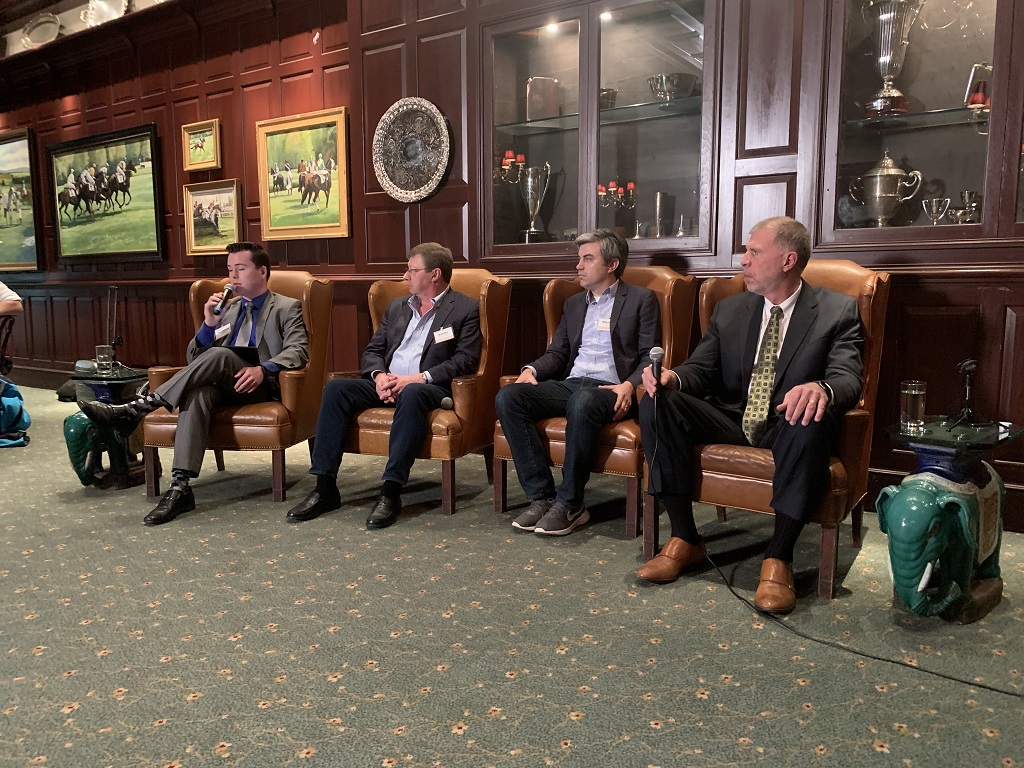
PANEL 3 – Financing Mechanisms for Community Broadband
- In the world of digital infrastructure financing, it often seems like there’s a “Private Sector is from Mars” and “Non-profits are from Venus” attitude. The conversations have been segmented and distinct. But a new approach suggests change is underway. How robust are the proposals for Community Connectivity Providers? And what’s the financial game plan for municipalities in light of IIJA’s parameters?
- Panelists:
- Jeff Christensen, President & CEO, EntryPoint Networks
- Kim McKinley, Chief Marketing Officer, UTOPIA Fiber
- Jane Coffin, Chief Community Officer, Connect Humanity
- Robert Wack, former Westminster Common Council President and leader of the Open Access Citywide Fiber Network initiative
- Moderated by Christopher Mitchell, Director, Community Broadband Networks, Institute for Local Self-Reliance
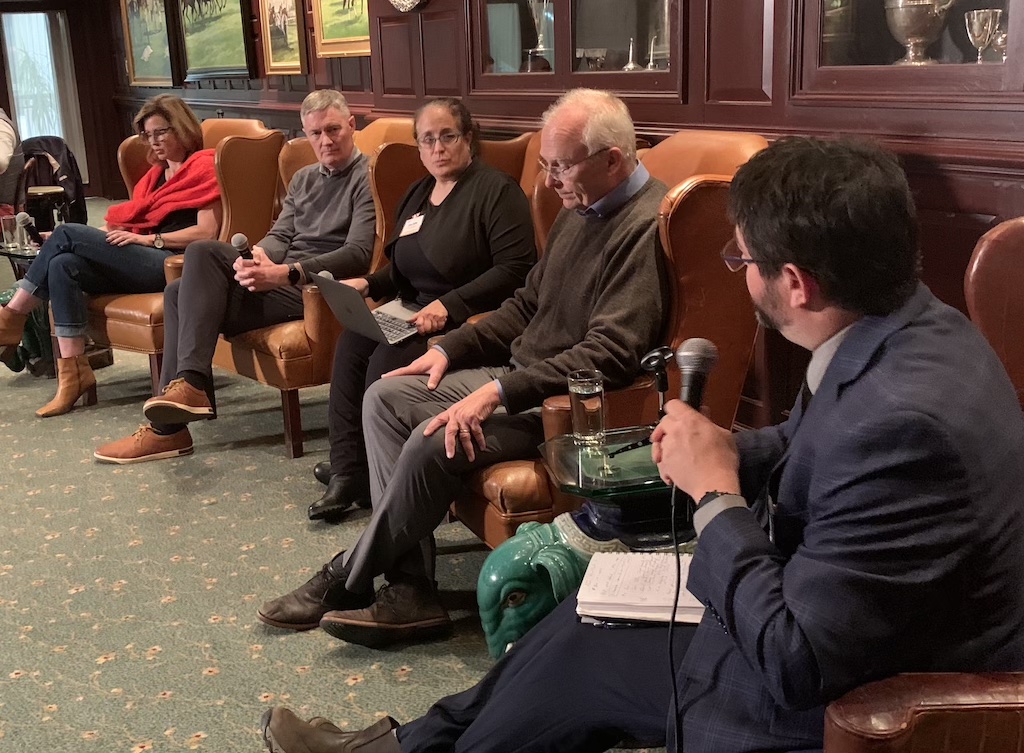
PANEL 4 – Financing Roundtable: How Venture Capital, Private Equity and Institutional Investors are Watching Digital Infrastructure
- Digital Infrastructure Investment–Washington will conclude with a roundtable panel from financial institutions investing in broadband and smart cities. How important is the IIJA for their plans? What other government funding has been attractive to these investors? And what’s their view of the broadband industry’s playbook for investment?
- Panelists:
- Tom Coverick, Managing Director, Keybanc Capital Markets
- Vikash Harlalka, Equity Research Analyst, Communications Services Team, New Street Research
- David Wedick, Chief Financial Office, Maine Connectivity Authority
- Moderated by Drew Clark, Editor and Publisher, Broadband Breakfast
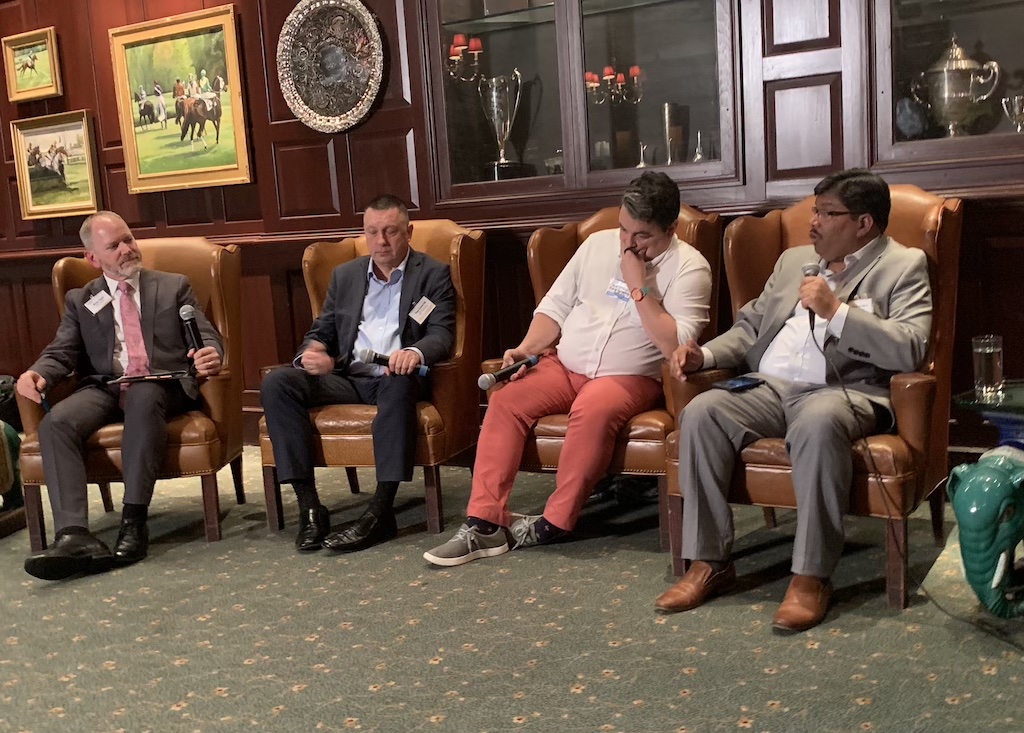

Digital Infrastructure Investment–Washington Panelist Bios

Phil Murphy has served as Senior Advisor and Legislative Director to Congressman Mike Doyle, D-Penn., Chairman of the Communications and Telecommunications Subcommittee on the Energy and Commerce Committee. He has directed and overseen the Congressman’s legislative agenda and his Chairmanship of the Subcommittee. He also served as Staff Director of the Congressional Robotics Caucus. Previously, he served as a Legislative Clerk for the Subcommittee on Telecommunications and the Internet under then Energy and Commerce Committee Chairman John Dingell.
PANEL 1 – What’s the State of the IIJA?
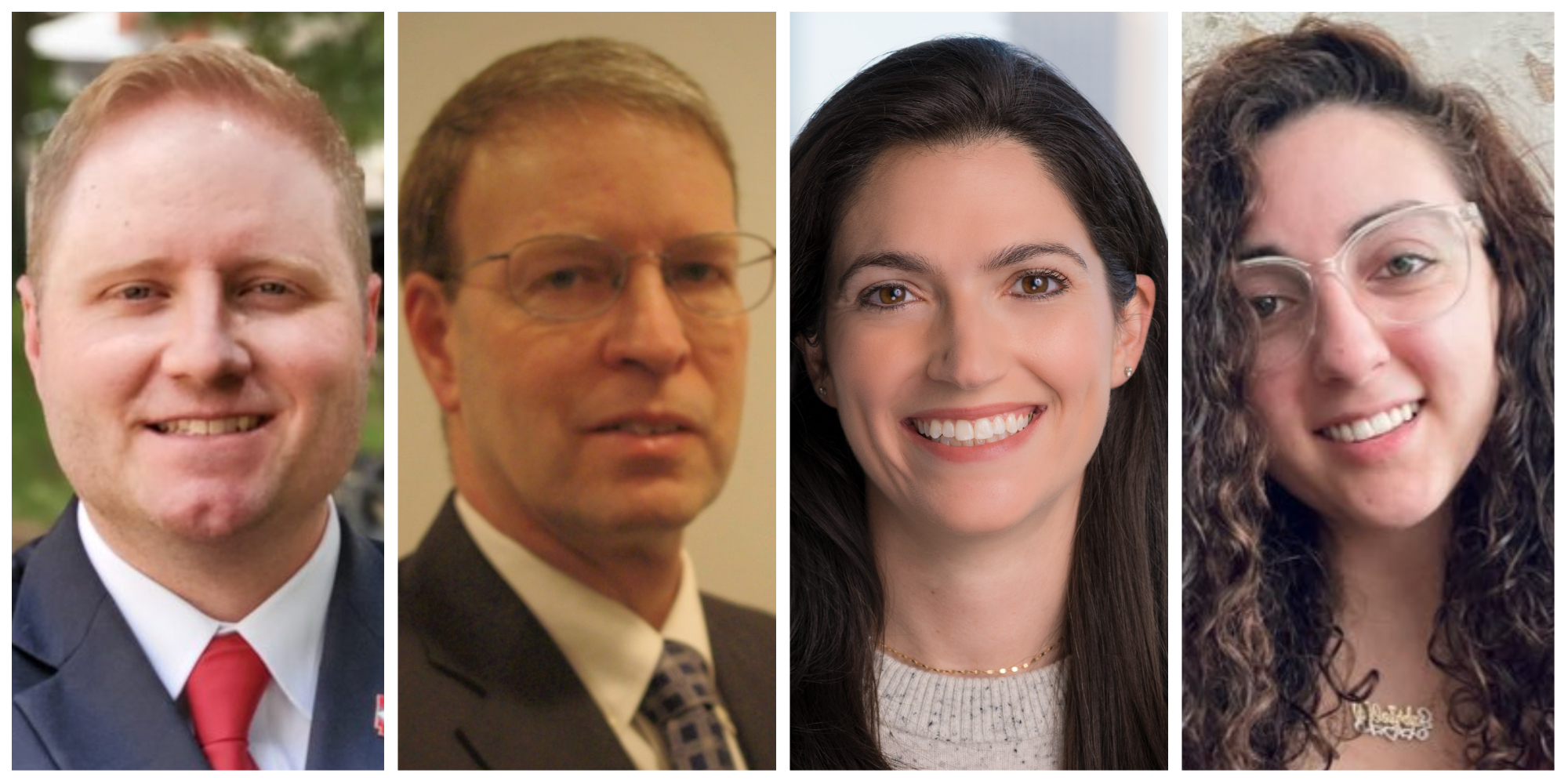
Glen Howie is the Director of the Arkansas State Broadband Office, where he serves as the chief broadband advisor to Gov. Asa Hutchinson. He will oversee the state’s BEAD and Digital Equity planning and implementation, an effort expected to exceed $1 billion. Starting in his role August 1, he came to Arkansas from the nationally recognized Louisiana Office of Broadband Development and Connectivity.
Kenrick (Rick) Gordon, P.E. has over 30 years of engineering design and construction administration experience. As the Director of Maryland’s Office of Statewide Broadband at the Maryland Department of Housing and Community Development (DHCD), Rick oversees digital inclusion efforts and the expansion of broadband capabilities statewide to ensure broadband access is available to all unserved households and businesses in Maryland. He works with agencies across county, state and the federal government and with independent provider stakeholders to establish and enact programs to provide statewide access to high-speed internet. Prior to his position at DHCD, he served as the Director of the Governor’s Office of Rural Broadband.
Hannah Hill is a Principal at Boston Consulting Group and co-leads the firm’s efforts around public sector digital equity. She has worked on broadband access and digital equity with partners across the public, private and social sectors, and at federal, state and local levels. Her work includes extensive research on barriers to adoption, supporting states and localities to develop broadband strategic plans, and publishing several reports on the topic.
Gabriella Novello (moderator) is a journalist for Communications Daily covering telecommunications and the Federal Communications Commission. She joined the Warren Communications News staff in 2020, after covering election integrity and the 2020 presidential election at WhoWhatWhy. She received her bachelor’s degree in journalism with a minor in health promotion at American University.
PANEL 2 – Broadband Mapping: Are We on the Right Track or the Wrong Track?

Bryan Darr is the Executive Vice-President of Smart Cities at Ookla, the company behind Speedtest. His focus on telecom infrastructure and the drive to make cities smarter enables Ookla to leverage network intelligence datasets and solutions specifically designed to help cities and the wireless industry more efficiently process permit applications for network densification and 5G growth. Cities are hard at work protecting the public interest and ensuring digital inclusion, while simultaneously working with network providers on the huge amount of 5G and IoT deployments necessary to stay competitive, increase efficiencies and create a smarter city that provides a higher quality of life for all.
Jim Stegeman is a recognized expert behind the development of the latest generation economic cost models and locational data used by cable, telco, tower and wireless companies and by state and government agencies in support of broadband deployment analysis and network valuation. He led the design and implementation of the Broadband Serviceable Location Fabric used by the FCC for the national broadband mapping effort, which will drive the funding allocation of NTIA’s $42.45Billion BEAD program. He led the design, coding and implementation of the Connect America Cost Model (“CAM”, “CACM”, “A-CAM”) that is being used by the FCC to disburse over $1.5Billion annually to fund broadband deployment and was used by the FCC to set the reserve levels for the CAFII and RDOF auctions.
Broadband Breakfast Reporter David McGarry hails from sunny Los Angeles. He has written extensively on privacy and tech policy. His work has appeared in such publications as RealClearPolicy and The Center Square.
PANEL 3 – Financing Mechanisms for Community Broadband

Jeff Christensen is the President of EntryPoint and oversees Research and Development, Operations Planning, Strategic Partnerships, Customer Support, and Strategy Development. From 2010 – 2012, he was Vice President of Operations for Emdeon (A Blackstone Partners Company) and ran the Payment Automation Division of Emdeon in Salt Lake City, Utah and oversaw off-shore production in Noida, India. Division revenues grew by more than 400% in the three years Christensen managed the group.
Kim McKinley joined UTOPIA Fiber in 2010. In her role as CMO, she oversees the Marketing, Sales, Order Fulfillment and the Customer Service departments. Before coming to UTOPIA Fiber, she worked in the Hospitality Marketing industry on the east coast.
Jane Coffin has over 25 years of experience at the intersection of technology, pol/reg work, and infrastructure development. She spent 10 years at the Internet Society building Internet exchange points (IXPs) and community-based networks around the world, tangling with governments keen on over-regulating the Internet. Jane currently works with local communities to help them on their digital inclusion and equity journeys by listening to their local needs to find connectivity solutions for future socio-economic development.
Robert Wack served 16 years on the Westminster, Maryland city council, where he led the creation of the Westminster Fiber Network, the mid-Atlantic region’s first and only community-wide, publicly owned, fiber optic network. Using an innovative Public Private Partnership business model, every Westminster resident and business now has access to dedicated, symmetric gigabit services at very competitive rates. The project continues tracking to achieve all financial and operational goals within the planned timeline. He currently serves as Deputy Health Officer for the Carroll County Health Department.
Christopher Mitchell (moderator) is the Director of the Community Broadband Networks Initiative with the Institute for Local Self-Reliance in Minneapolis. Mitchell, a leading national expert on community networks, Internet access, and local broadband policies, built MuniNetworks.org, the comprehensive online clearinghouse of information about local government policies to improve Internet access. Its interactive community broadband network map tracks more than 600 such networks.
PANEL 4 – Financing Roundtable: How Venture Capital, Private Equity and Institutional Investors are Watching Digital Infrastructure

Tom Coverick serves as the managing director for Keybanc Capital Markets, working with their public sector division. Tom has extensive experience in municipal broadband and public finance in the Midwest, Southwest, and Northeast. Tom has worked for broadband initiatives such as UTOPIA Fiber, the Utah Infrastructure Agency, and MINet.
Vikash Harlalka is a member of the Communications Services team at New Street Research focusing mainly on the large-cap broadband operators. Vikash has been covering the US Cable, Media and Telecom industries for the past 15 years and has extensive knowledge about the broadband industry. Vikash has worked on reports analyzing the Biden administration’s plans for funding broadband deployment and evaluating the financial viability of the plans. He is a Chartered Accountant, holds an MBA from IIM Ahmedabad and is a CFA Charterholder.
David Wedick is a skilled financial professional with twenty years of diversified capital markets and economic development experience. Since March 2022, David has been the CFO at the Maine Connectivity Authority, overseeing the strategic and day-to-day aspects of the MCA’s financial management. David’s prior experience includes CDFIs (Maine), impact investing private fund management (global), microfinance institution leadership (Tanzania) and investment banking (London).
Drew Clark (moderator) is CEO of Breakfast Media LLC, the Editor and Publisher of BroadbandBreakfast.com and a nationally-respected telecommunications attorney. Under the American Recovery and Reinvestment Act of 2009, he served as head of the State Broadband Initiative in Illinois. Now, in light of the 2021 Infrastructure Investment and Jobs Act, attorney Clark helps fiber-based and wireless clients secure funding, identify markets, broker infrastructure and operate in the public right of way.
Additional topics covered by Digital Infrastructure Investment–Washington
Due to the far-reaching scope of the Infrastructure Investment and Jobs Act and the opportunities it presents to connect Americans, our conference will cover topics including community mapping and the required investment and placement of wireless towers, the promise of truly “smart cities” and the impact on real estate, and the best financial partners for the rollout of IIJA across the country.
Among the topics we will be discussing at Digital Infrastructure Investment–Washington:
- The current moment for Digital Infrastructure Investment: How federal, state and private sector assets combine
- How private equity and venture capital (U.S. and global) are reacting to IIJA funding
- How the markets for small cell infrastructure, towers and data centers is leveraging current Digital Infrastructure Investment
- The impact of Digital Infrastructure Investment on real estate investment
- Broadband mapping and its role in the IIJA
- The progress of smart cities deployments, in the U.S. and globally
2022 Digital Infrastructure Investment program video page:

Other Broadband Breakfast events:









